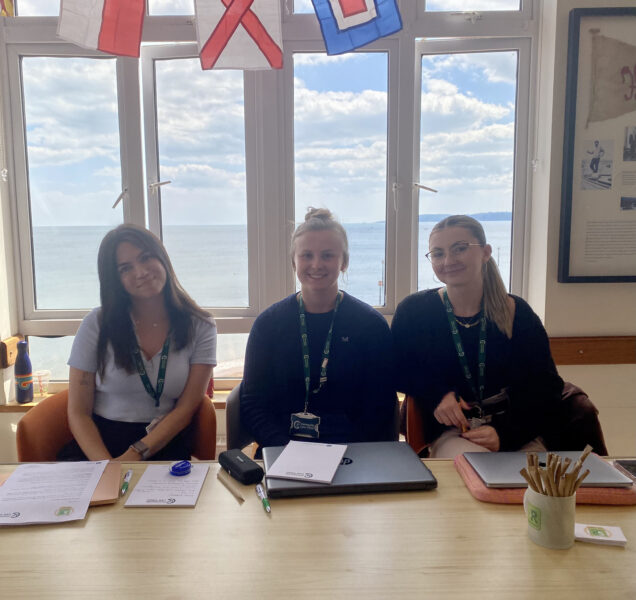
While many people will have been enjoying the midday sunshine, a community of students and lawyers gathered together in Exmouth and Teignmouth on the 4th to the 5th of June to provide free legal advice. Inspired by the University of Newcastle in Australia, Professor Sue Prince decided to bring the concept of ‘Law on the Beach’ back to the UK, desiring to both empower the locals of the South West and foster connections between our very own law students and seasoned professionals. This project ran as an extension of the University of Exeter’s Community Law Clinic, which assists those who are not eligible for legal aid or cannot afford to go private.
According to Prince, Devon can be considered a ‘legal advice desert’. For some, regardless of whether they are entitled to it, due to the cost of living crisis and a struggle for organisations to maintain free legal services, many are unable to access the legal aid that they need. In a study conducted by The Law Society, the South West is ‘bereft in almost all areas of law’, highlighting that across England and Wales, approximately ’42 [million] people… do not have access to a local community care legal aid provider. Recognising that these difficulties are particularly prevalent in rural and seaside areas, Exmouth and Teignmouth presented prime locations to make an impact.
Lucky enough to have been invited to attend the clinic in action, I was able to meet with Emma, Courtney, and Ella, third-year LLB students, in Teignmouth, who provided further insight into the inner workings of the project. Supported by professionals from Devon-based law firms, including Scott Richards Solicitors and Trowers and Hamlins, they told me how they had undertaken the project through the module ‘Access to Justice’, wanting to take the theory they had learned and put it into practice. At first, they were not sure what to expect, and each agreed that the experience was particularly ‘eye-opening’, especially as there were areas of law that they had not covered before.
[C]lients did not see their issues as legal problems but instead personal ones, meaning that the legal process can sometimes be very emotionally taxing for the client.
Professor Sue Prince
The experience was also beneficial in developing their ability to practice the law, as Emma told me how they were able to develop their skills in ‘client interviewing’. She explained the process as the client initially filling out a form and then being triaged to see if the lawyer is able to help them. They are then interviewed by their team to diagnose the issue and offer a possible solution. If no solution is available, they would then signpost to either other appropriate services or sometimes the law firms that were present. Despite this process seeming very official, Courtney wished to express the humanising and friendly nature of the clinic. Not only did this help the clinic ‘feel less daunting’ but it also highlighted a key aspect of the client-lawyer relationship that Prince felt was important. The professor also said that they recognised that the clients did not see their issues as legal problems but instead personal ones, meaning that the legal process can sometimes be very emotionally taxing for the client. Subsequently, the issues need to be handled in an empathetic manner, and Prince stated that she was very impressed at how deftly the students managed such sensitive issues. This was also another reason for the unconventional beach location: it meant clients could enjoy the beach air while they waited for their case to be reviewed, which Prince hoped would mitigate the stress and formality associated.
To sum up their experience, the students wished to express their gratitude for the opportunity and to thank those who supported them, in particular the lawyers who had collaborated with the project. Ella also wanted to urge those moving into their final year to take the Access to Justice Module: ‘It’s such a good steppingstone, especially to get a training contract’, which, as every budding lawyer knows, can often be a daunting feat.
After speaking with members of Scott Richard’s firm, I realised that this theme of building connections was present in every fibre of the project. For example, this was the first time the Scott Richards firm had collaborated with the University of Exeter, and Adam Clinch-Othman, a partner solicitor, told me how excited he was to be supporting the students in any way that he could. In many ways, SR is not unfamiliar with this kind of project. On Saturdays, SR offers ‘Saturday Surgeries’, which aims to enable members of the public to access legal advice out of hours and without an appointment, a key aspect of making law services more accessible.
Maintaining relations between organisations that believe in increasing access to justice is paramount for projects such as this to thrive and continue, and with the steady number of people who came to visit ‘Law on the Beach’, one can be sure this will not be the last project we see from the University of Exeter’s very own law clinics.


